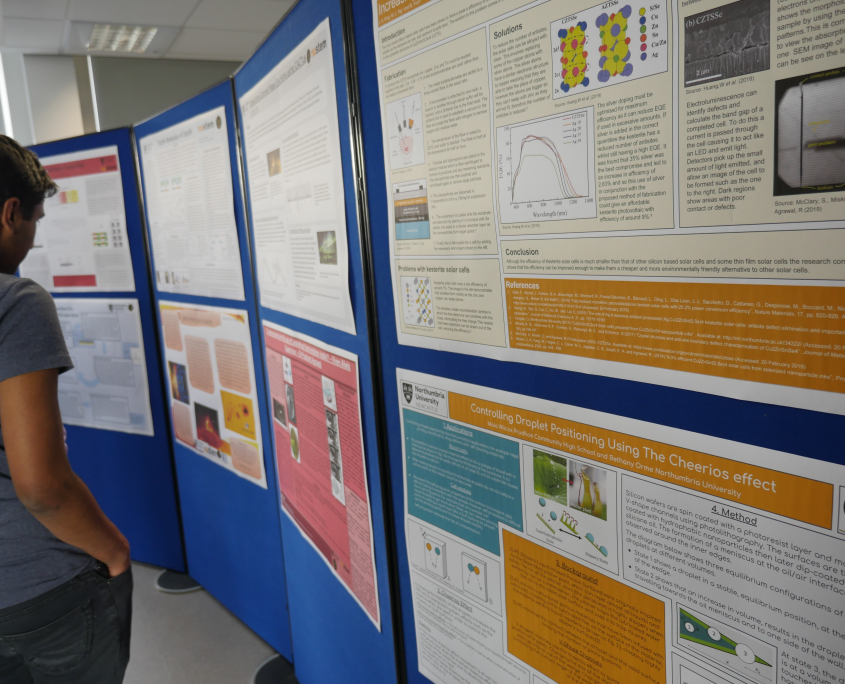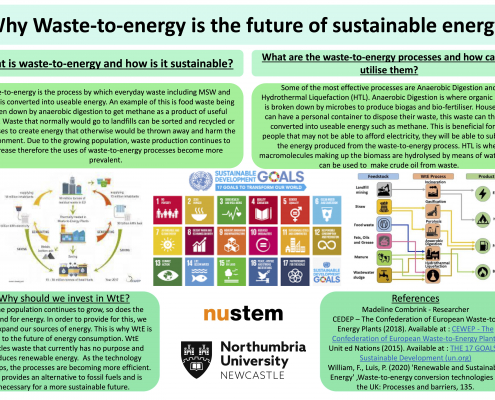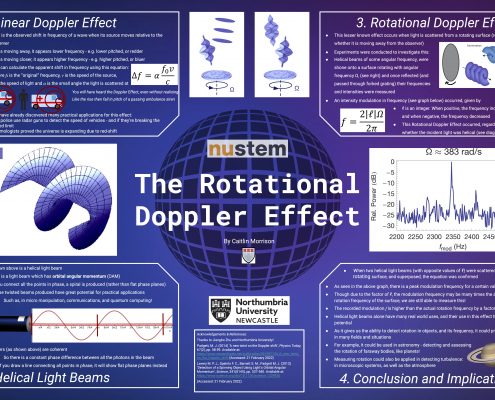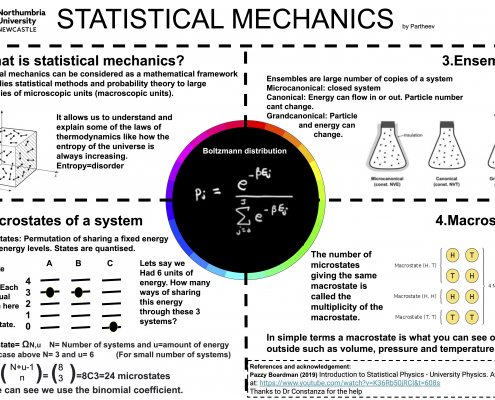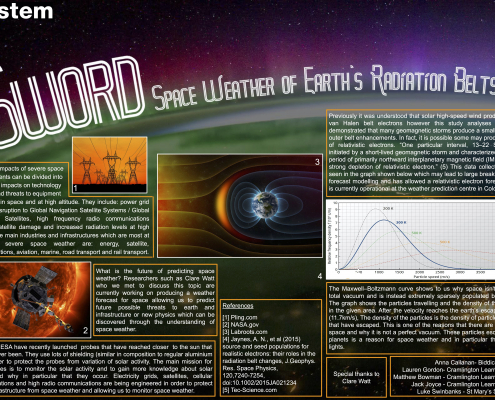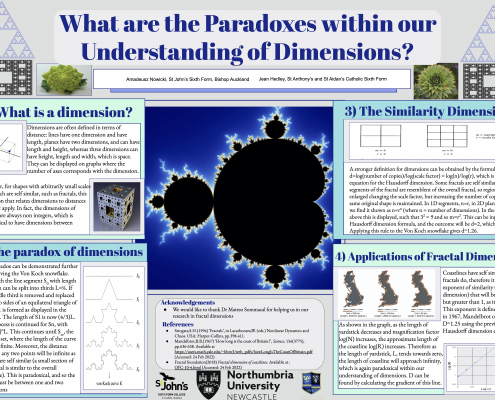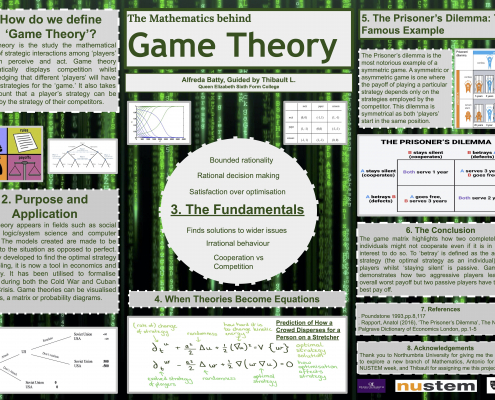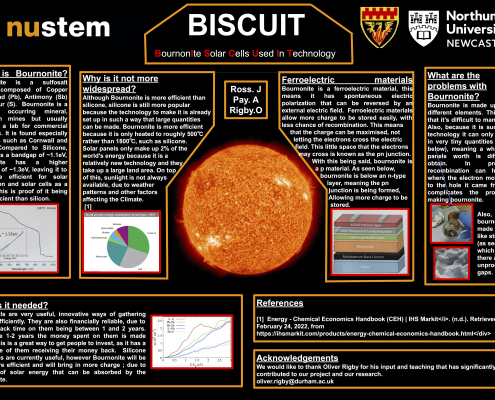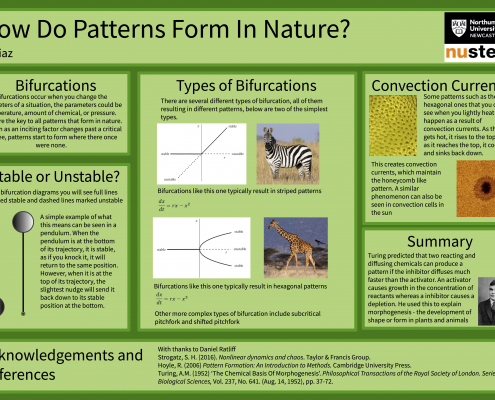About the Experience Week
Every February half term, NUSTEM coordinates an “Experience Week” for a limited number of Y12 students from local schools. We deliberately run this week in February as our own university students are on campus and our participants can have a better experience of what life at university is really like.
During a typical Experience Week, participants will:
-
- Attend a first year university lecture of undergraduate programmes;
- Interview an academic researcher or postgraduate student;
- Create and showcase a research poster;
- Visit laboratories, specialist facilities and get a guided tour of our campus;
- Experience student life at university.
By the end of the week participants will have developed their ability to engage with academic research, problem solving and collaborative group work.
Y12 students
16-20 Feb 2026
10:00 -13:00
Northumbria University
City campus
Contact us
nustem.exp.week@northumbria.ac.uk
How and when to apply to the Experience Week
Overview of the Week
Here is what you can expect from the Experience Week. Please not that sessions and timings might change slightly.
Monday (10:00-13:00)
- Welcome session
- Choosing a research project
- Campus tour
- Research skills session
Tuesday (10:00-13:00)
- Designing a research poster
- Planning and interviewing a researcher
Wednesday (10:00-13:00)
- Working on research poster
- Attending a first year lecture
Thursday (10:00-13:00)
- Working & submitting a research poster
- Student life & careers talk
Friday (10:00-13:30)
- Hands-on activities/visits to laboratory spaces
- Poster conference & lunch
- Certificate of attendance
READ before applying
Here are few tips and things to consider before applying:
- The Experience Week was designed for Y12 students from local schools with a genuine interest in understanding what it’s like to study Physics, Mathematics, Chemistry or space physiology at University level.
- The Experience Week will take place from the 16th to 20th of February 2026.
- Make sure to provide us with an correct email address you check on a regular basis. This is the only way we have to get in touch with you.
- Provide us with the correct email address of your teacher. This is the only way we’ll have to contact them to ask them to act as your referee.
- It is your responsibility to notify your teacher that you are using them as your referee.
- You can apply for any of strands (Physics, Mathematics, Chemistry or space physiology) of the Experience Week.
- You should write one application for each strand you apply for.
- If are accepted in one strand, you will not be allowed to swap strands, sorry.
- This is a non-residential week. Regrettably we are not able to cover for travel or accommodation costs.
- Application deadline: 12th December 2025.
Apply here
Apply for the NUSTEM Experience Week here. Link opens a new window, make sure you return here and read the information below
How is my application assessed ?
Your application will be assessed against the following assessment matrix
- Applications are ranked according to their scores and offers are made to applicants with the highest scores.
- The number of places per strand depends on several factors (e.g. staff & research projects available, room capacity).
- On average, we offer 14 to 16 places per strand . In case of a tie we will also take into consideration the reference provided by the applicant’s teacher.
- Remaining applicants are kept on a “waiting list,” and will be offered a place in case of any drop-outs.
Any queries regarding the assessment of applications should be sent to nustem.exp.week@northumbria.ac.uk
What happens NEXT?
- You will get a confirmation message in the application form after your submission, acknowledging your application!
- Deadline for applications is 12th of December 2025. We may have mentioned that already!
- Please make sure that you notify your teacher to look for our email. They also have to respond to it by the 12th of December 2025.
- We will inform you of the outcome of your application no later than 19th of December 2025.
- From the 5th to the 30th of January 2026, successful applications will receive additional information regarding the Experience Week.
If you have any questions regarding your application, please email contact us at nustem.exp.week@northumbria.ac.uk
Feedback from participants
“The experience week was an insightful and very much enjoyable experience, which took my interest and passion for physics to another level. I would recommend this week to anyone who is thinking about studying Physics post sixth form because it’s a really fun opportunity to meet like-minded people and know what it’s like to be a uni student. ”
“The whole experience was exciting and new, it gave me a whole new understanding of what research is like and what mathematics is truly like. ”
“This experience week is a very commendable asset to anyone who plans to study mathematics or physics. You really get to know what student life is like.”










